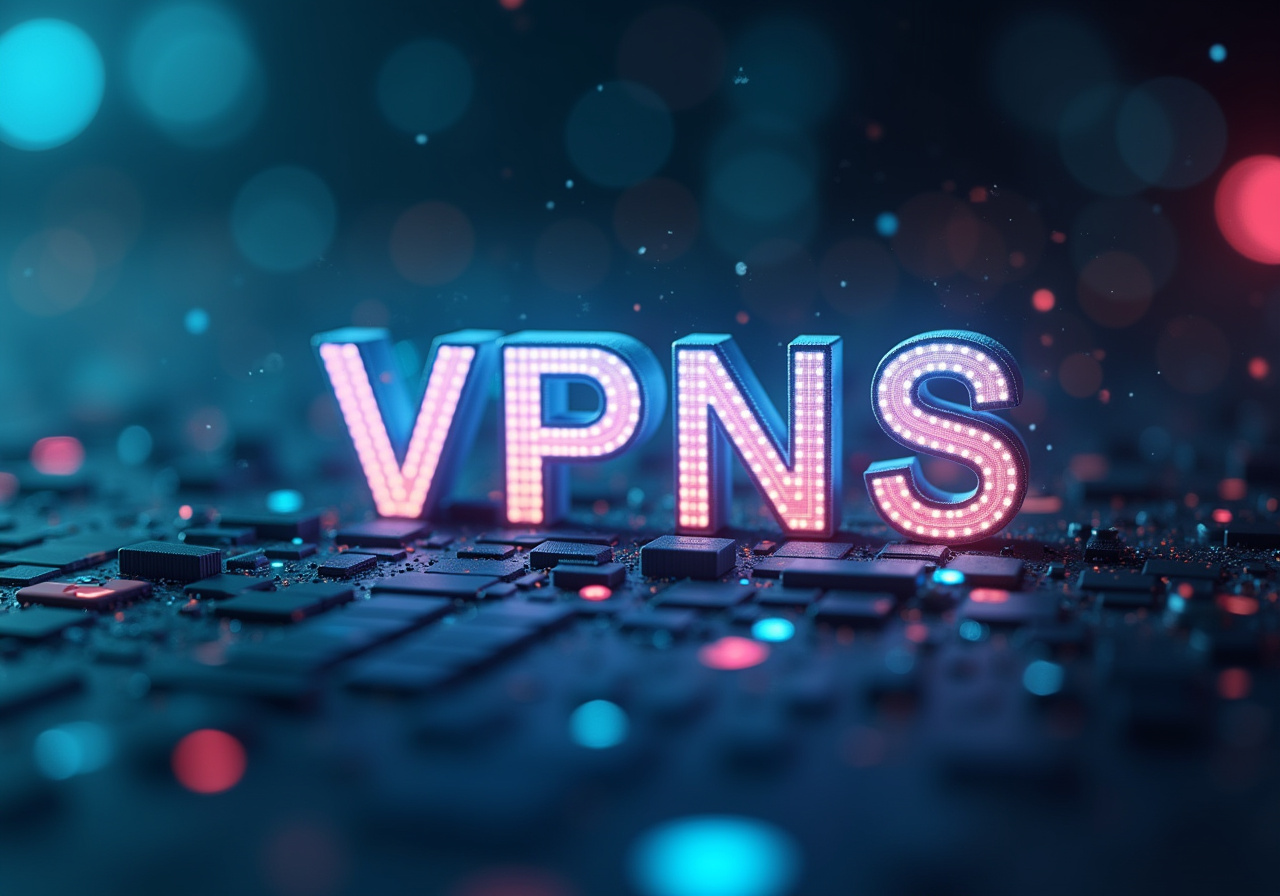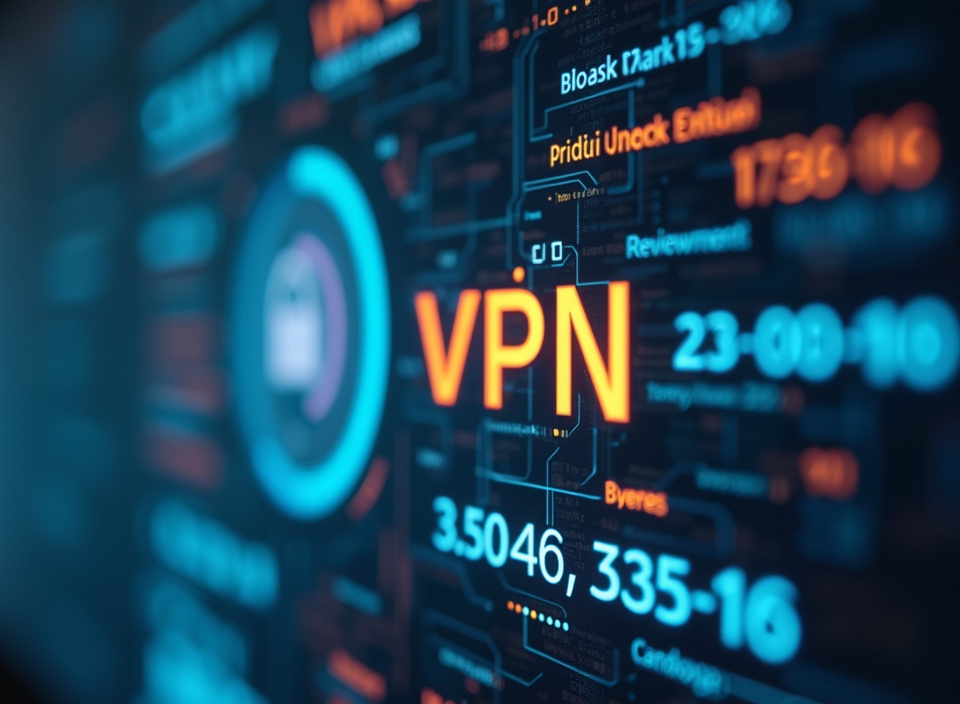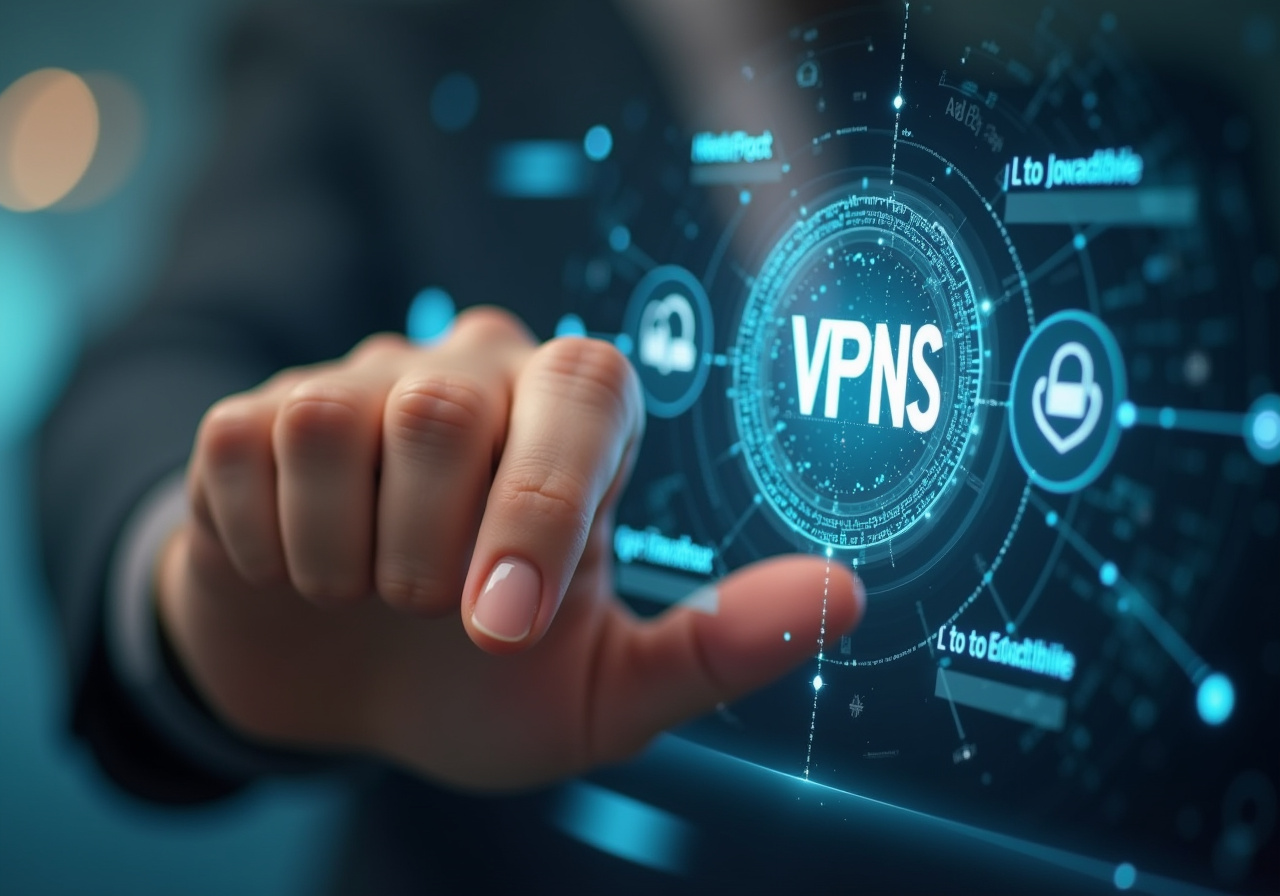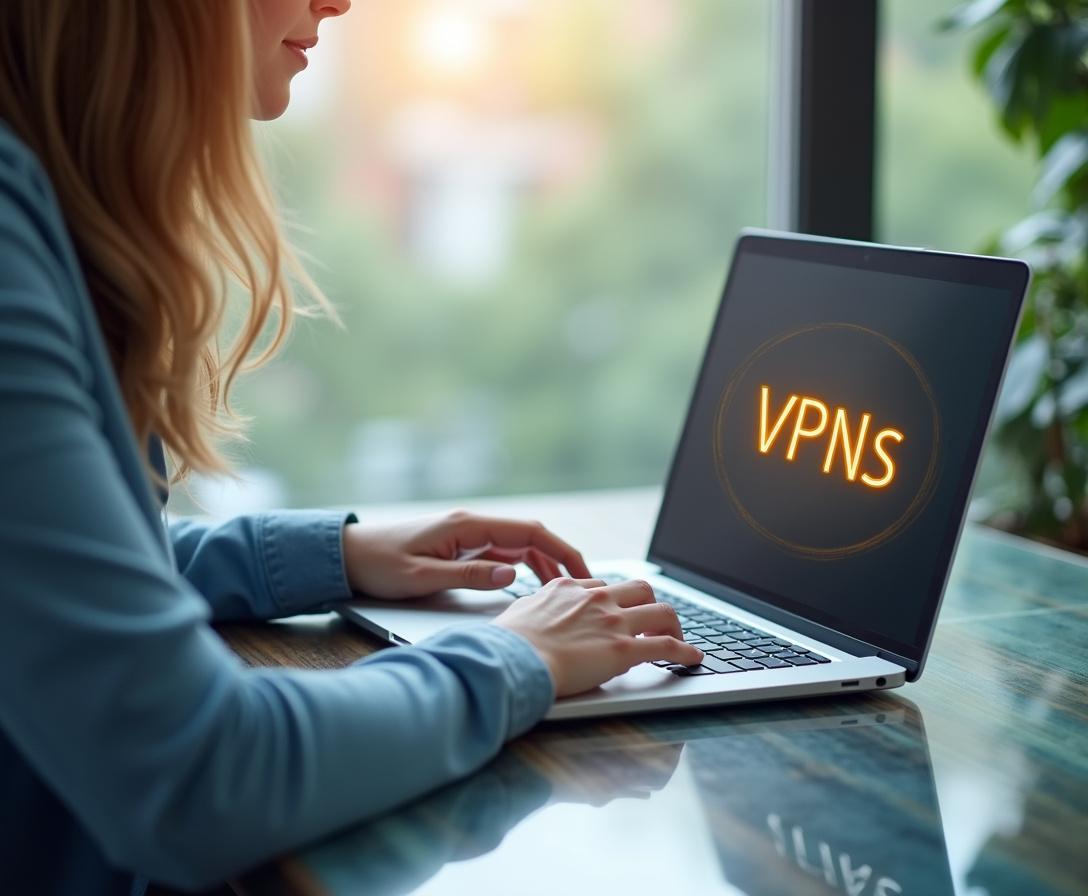Top VPNs for Mac Users: A Comprehensive Guide
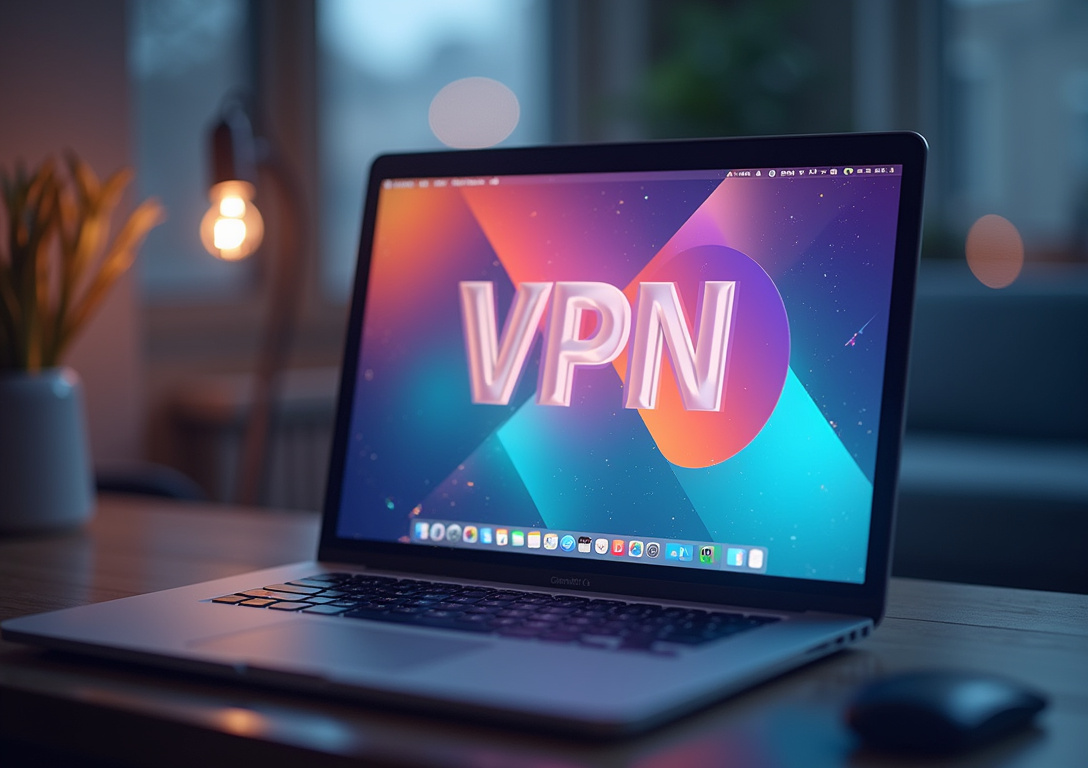
Table of Contents
In today's interconnected world, online privacy has become a paramount concern. The increasing sophistication of cyber threats, combined with growing surveillance practices, necessitates proactive measures to safeguard personal data and ensure secure online experiences. For Mac users, while the macOS operating system offers a relatively strong foundation of security, it's not impervious to vulnerabilities, particularly when browsing the internet.
A Virtual Private Network (VPN) provides an essential layer of protection, offering a secure and encrypted connection that effectively masks your online identity and shields your sensitive information from prying eyes. Choosing the right VPN, however, can be a daunting task, considering the plethora of options available in the market. This comprehensive guide is designed to navigate Mac users through the key considerations when selecting a VPN, focusing on features optimized for seamless integration with Apple devices and robust security protocols.
The goal is to empower you with the knowledge necessary to make an informed decision, ensuring optimal online protection and a smooth, user-friendly experience on your Mac. The core function of a VPN is to create a secure tunnel for your internet traffic, encrypting all data transmitted between your device and the VPN server. This encryption prevents third parties, such as internet service providers (ISPs), government agencies, and cybercriminals, from intercepting and deciphering your online activity.
For a *Mac user*, this means that your browsing history, emails, passwords, and other sensitive data are protected from unauthorized access. The level of encryption employed by a VPN is a critical factor to consider. Look for VPNs that utilize robust encryption protocols such as Advanced Encryption Standard (AES) with a 256-bit key, often referred to as AES-256.
This is the industry standard and is considered virtually unbreakable, providing the highest level of security for your online data. Avoid VPNs that use older or weaker encryption protocols, as they may be vulnerable to attacks. Beyond encryption, a fundamental aspect of a reliable VPN service is its adherence to a strict no-logs policy.
This means that the VPN provider does not collect or store any logs of your online activity, including your browsing history, IP address, connection timestamps, or bandwidth usage. A no-logs policy ensures that your online activities remain completely private and cannot be traced back to you, even if the VPN provider is compelled to disclose user data by legal authorities. It's crucial to carefully review the VPN provider's privacy policy to understand their data retention practices and ensure that they are committed to protecting your privacy.
Assess the company's jurisdiction, some countries have mandatory data retention laws, which would defeat the purpose of using a VPN. The location of the VPN provider's headquarters plays a significant role in determining its legal obligations regarding data privacy. Choose a VPN provider that is based in a country with strong data protection laws and a commitment to online privacy.
A vital element for judging a *Mac VPN* is the server network. A vast and geographically diverse server network is essential for several reasons. Firstly, it allows you to connect to servers located closer to your physical location, minimizing latency and improving connection speeds.
Secondly, it provides access to geo-restricted content from various regions, allowing you to bypass censorship and access streaming services, websites, and other online resources that may be blocked in your country. When evaluating a VPN's server network, consider the number of servers, their geographical distribution, and the overall network infrastructure. A well-maintained and optimized server network ensures reliable performance and a seamless browsing experience.
Seamless integration with macOS is paramount when choosing a *VPN for Apple*. The ideal *Mac VPN* offers a dedicated application designed specifically for the macOS environment, providing an intuitive and user-friendly interface that aligns with the overall Apple aesthetic. Avoid VPN services that rely solely on manual configuration through the macOS Network Preferences, as this can be cumbersome and technically challenging for many users.
A well-designed macOS application should streamline the connection process, allowing you to connect to a desired server with just a few clicks. It should also provide easy access to essential settings and features, such as server selection, protocol selection, kill switch activation, and custom DNS configuration. The application should integrate seamlessly with the macOS system, providing a native user experience that feels consistent with the operating system.
Look for features like menu bar integration, which allows you to quickly connect and disconnect from the VPN without having to open the full application window. Automatic startup is another convenient feature that ensures the VPN connects automatically whenever you start your Mac, providing continuous protection without requiring manual intervention. A kill switch is an indispensable security feature that automatically disconnects your internet connection if the VPN connection drops unexpectedly.
This prevents your IP address and unencrypted data from being exposed, ensuring that your online activity remains protected at all times. Ensure that the VPN application offers a reliable and customizable kill switch that can be configured to block all internet traffic or only specific applications. Split tunneling is a valuable feature that allows you to selectively route traffic through the VPN while other traffic is routed through your regular internet connection.
This can be useful for accessing local network resources, such as printers or file servers, or for applications that do not require VPN protection. Split tunneling can also improve performance by allowing you to bypass the VPN for bandwidth-intensive activities, such as streaming or downloading large files. When considering a *seamless VPN*, it's essential to evaluate the customer support options offered by the VPN provider.
A responsive and helpful customer support team can be invaluable if you encounter any technical issues or have questions about the service. Look for VPN providers that offer multiple support channels, such as email, live chat, and a comprehensive knowledge base. A knowledge base should include detailed guides, tutorials, and troubleshooting articles that address common questions and issues.
The availability of 24/7 live chat support is particularly beneficial, as it allows you to get immediate assistance whenever you need it. Before committing to a long-term subscription, take advantage of free trials or money-back guarantees offered by the VPN provider. This allows you to test the VPN's performance, compatibility with your Mac, and the quality of customer support before making a financial commitment.
Be sure to carefully read the terms and conditions of the free trial or money-back guarantee to understand any limitations or restrictions. Pay attention to user reviews and compare different VPN providers to get a better understanding of their strengths and weaknesses. Focus on reviews from *Mac user*s specifically, as they will provide more relevant insights into the VPN's performance and compatibility with macOS.
Look for reviews that address issues such as speed, reliability, ease of use, customer support, and the VPN's ability to bypass geo-restrictions. The performance considerations are important for a *seamless VPN* experience. Nobody wants their internet speed to halt because of VPN usage.
Choosing the Right VPN Provider: Security and Reliability
The compatibility with other *Apple device security* measures is also a crucial factor to consider when selecting a VPN for your Mac. A well-designed VPN should seamlessly integrate with macOS's built-in security features, such as the firewall and Gatekeeper, without causing conflicts or performance issues. It should also be compatible with other security software you may have installed, such as antivirus programs and anti-malware tools.
This ensures comprehensive protection against a wide range of online threats. Consider VPNs that offer browser extensions for Safari, Chrome, and Firefox. Browser extensions provide an additional layer of protection and allow you to easily control your VPN connection directly from your browser.
They can also offer features such as ad blocking, tracker blocking, and WebRTC leak protection, further enhancing your online privacy and security. WebRTC (Web Real-Time Communication) is a technology that allows web browsers to communicate directly with each other, which can potentially reveal your IP address even when using a VPN. A reputable VPN browser extension should include WebRTC leak protection to prevent this from happening.
Ensure that the VPN extension is lightweight and does not significantly impact browser performance. A VPN that supports multiple simultaneous connections is also beneficial, allowing you to protect all your devices with a single subscription. This is particularly useful if you have multiple Macs, iPhones, iPads, or other devices that you want to secure.
Check the VPN provider's terms of service to see how many devices are allowed to connect simultaneously. Many reputable VPN providers offer plans that support five or more simultaneous connections. Look for VPNs that offer additional security features, such as malware protection and phishing protection.
These features can help to prevent you from accidentally downloading malicious software or falling victim to phishing scams. Some VPNs also offer dedicated IP addresses, which can improve your connection speed and reliability, as well as reduce the risk of being blacklisted by websites or online services. A dedicated IP address is an IP address that is assigned exclusively to you, rather than being shared with other VPN users.
This can be beneficial for accessing online services that are sensitive to shared IP addresses, such as online banking or e-commerce websites. However, dedicated IP addresses typically come at an extra cost. The ability to bypass geo-restrictions is a major draw for many VPN users.
Many people use VPNs to access streaming services, websites, and other online resources that are blocked in their region. Verify if the VPN reliably unlocks popular streaming services like Netflix, Hulu, BBC iPlayer, and others in different regions. This often requires continuous updates to the VPN's server network to circumvent blocking measures implemented by streaming providers.
For users who frequently travel or access content from different countries, this is a crucial consideration. It is important to understand that not all VPNs are equally effective at bypassing geo-restrictions, so thorough research and testing are essential. To get information for*Apple device security* read reviews from trusted sources and test the VPN yourself.
Enhancing Security with Effective Logging, Monitoring, and Audits
In today's digital age, *Apple device security* goes beyond just protecting your Mac from viruses and malware. It's about safeguarding your online privacy and ensuring that your personal data remains confidential. While macOS offers a built-in firewall and other security features, a VPN provides an additional layer of protection that is essential for maintaining online anonymity and security.
A key aspect of *Mac VPN* security is its ability to mask your IP address. Your IP address is a unique identifier that can be used to track your online activity and identify your location. A VPN replaces your real IP address with one from its server network, making it difficult for websites, advertisers, and other third parties to track your online movements.
This is particularly important when using public Wi-Fi networks, which are often unsecured and vulnerable to eavesdropping. When connecting to a public Wi-Fi hotspot, your data is transmitted over an unencrypted connection, making it easy for hackers to intercept your personal information, such as passwords, credit card details, and browsing history. A VPN encrypts your data, making it unreadable to anyone who may be snooping on the network.
This provides peace of mind knowing that your online activity is protected, even when using unsecured Wi-Fi networks. Look for VPNs that offer automatic connection on untrusted Wi-Fi networks. This feature automatically connects you to the VPN whenever you connect to a public Wi-Fi hotspot, ensuring that your data is always protected.
Another important security consideration is the VPN's protocol selection. The VPN protocol determines how your data is encrypted and transmitted between your device and the VPN server. Some protocols are more secure and faster than others.
OpenVPN is generally considered the most secure protocol, but it can sometimes be slower than other protocols. IKEv2/IPsec is another secure protocol that is often faster than OpenVPN. WireGuard is a newer protocol that is designed to be both secure and fast.
Choose a VPN that offers a variety of protocols and allows you to select the protocol that best suits your needs. Some VPNs also offer obfuscation technology, which is designed to bypass VPN blocking techniques used by some websites and online services. Obfuscation makes your VPN traffic look like normal internet traffic, making it more difficult to detect and block.
This can be useful for accessing content that is blocked in your region or for bypassing censorship restrictions. Evaluate the jurisdiction where the VPN provider is based, if you are a *Mac user* that values the data, keep in mind that the VPN provider need to obey the local laws and regulations. This means if that the governemnt ask this entity to log your data, they would need to do it.
Thoroughly research the VPN's security practices and policies before making a decision. Look for VPNs that have been independently audited by third-party security firms to verify their claims. Ensure that the VPN provider has a clear and transparent privacy policy that outlines how your data is collected, used, and protected.
A reliable VPN for a *seamless VPN* and safe experience should be able to ensure complete anonymity so you can browse securely.
The Future of VPNs: Integration, AI, and Enhanced Privacy
In conclusion, selecting the optimal VPN for your Mac hinges on a multifaceted evaluation encompassing security protocols, macOS integration, performance, and user experience. A robust *Mac VPN* should prioritize strong encryption standards, such as AES-256, coupled with a stringent no-logs policy to ensure utmost privacy. Seamless integration with the macOS environment is paramount, necessitating a dedicated application that offers intuitive navigation, effortless server selection, and convenient access to essential features like a kill switch and split tunneling.
Performance considerations are equally crucial, as a VPN should not significantly impede internet speeds. A vast and geographically diverse server network is essential for minimizing latency and accessing geo-restricted content. Thoroughly assess customer support options, opting for providers that offer responsive and helpful assistance through multiple channels.
Prioritize *Apple device security* compatibility; ensuring the chosen VPN functions harmoniously with macOS's built-in security measures and any additional security software you employ. Browser extensions are additionally key in the overall *Mac user* consideration, since the most common usage of a device is browsing the web. Give special prioritization on the possibility of using various browsers like Safari, Chrome or Firefox.
Ultimately, the best VPN for your Mac is the one that aligns most closely with your specific needs and priorities. Take the time to conduct thorough research, compare different VPN providers, and take advantage of free trials or money-back guarantees to test their performance and compatibility with your Mac. Remember to read user reviews and seek recommendations from trusted sources.
By carefully considering these factors, you can make an informed decision and choose a VPN. Furthermore, it's important to understand the limitations of VPNs. While a VPN can significantly enhance your online privacy and security, it is not a silver bullet.
It is still possible for websites and online services to track your activity through other means, such as cookies, browser fingerprinting, and device identification. To further protect your privacy, consider using additional security measures, such as a privacy-focused browser, a tracker blocker, and a password manager. Stay informed about the latest security threats and vulnerabilities.
Regularly update your macOS and all your apps to patch any security vulnerabilities. Be cautious of phishing scams and avoid clicking on suspicious links or opening attachments from unknown senders. By taking these precautions, you can significantly reduce your risk of becoming a victim of cybercrime.
Ensure it provides all the above mentioned features, but most importantly that the software is intuitive. It should be easy in one click to select security options or change location so it makes the user experience fluid and *seamless VPN*. In doing so you will choose a option that serves as a tool for every day as an enhancement to the OS, more than an intrusive and annoying software.
Your online safety should remain something to consider.
Stay Updated
Get the latest VPN news, tips, and exclusive deals to your inbox.
